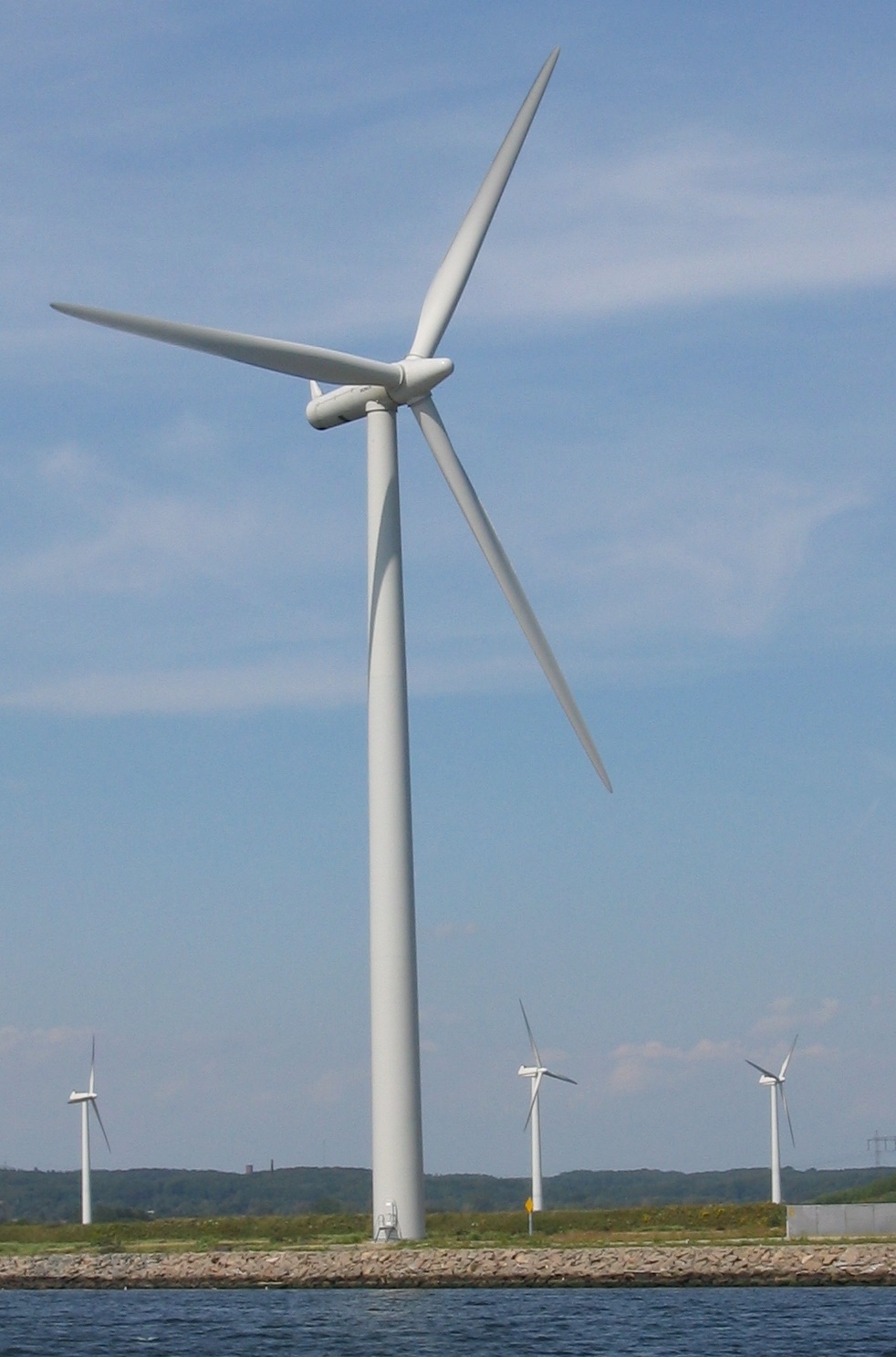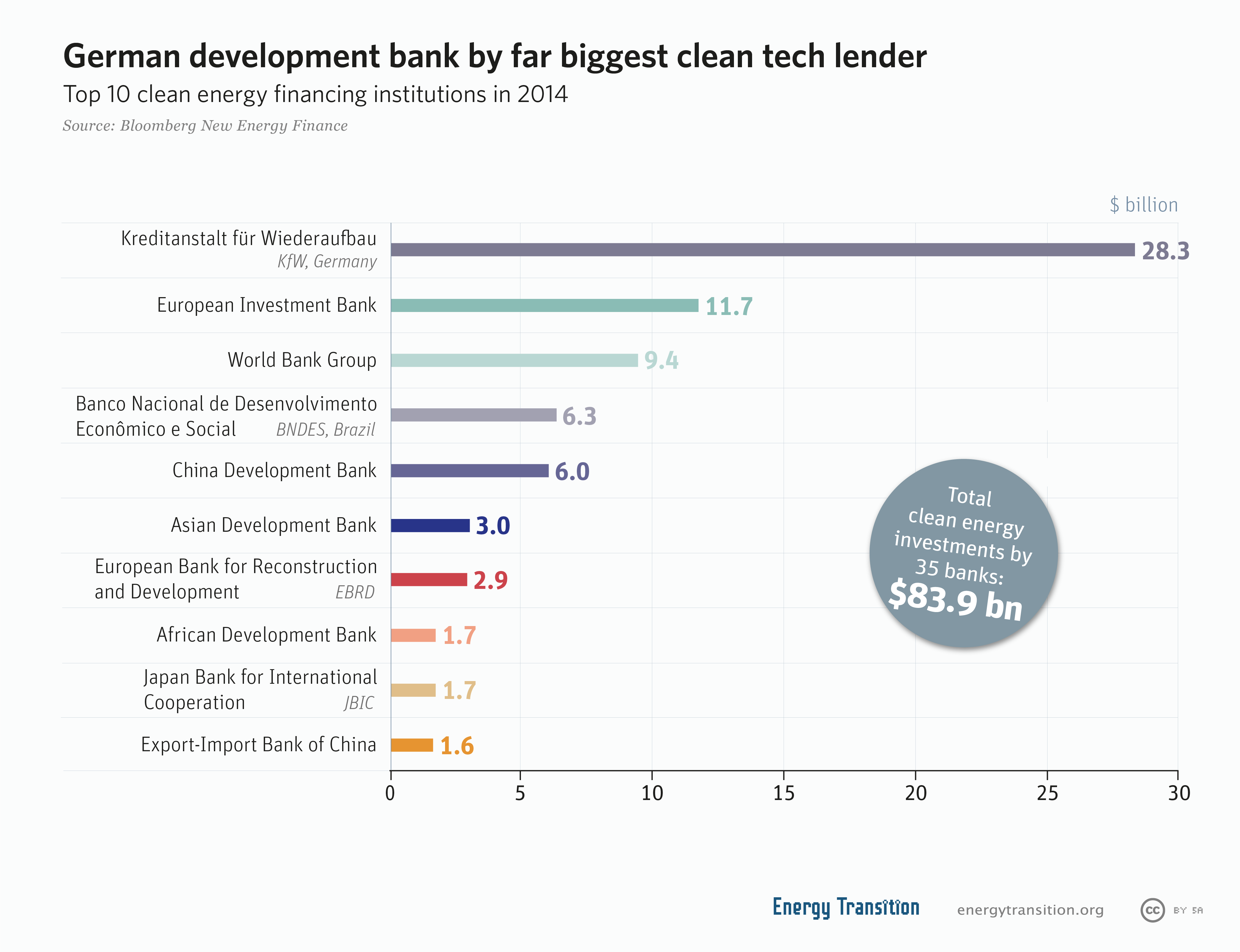|
Eco-investing
Eco-investing or green investing, is a form of socially responsible investing where investments are made in companies that support or provide environmentally friendly products and practices. These companies encourage (and often profit from) new technologies that support the transition from carbon dependence to more sustainable alternatives. Green finance is "any structured financial activity that has been created to ensure a better environmental outcome." As industries' environmental impacts become more apparent, green topics have not only taken center stage in pop-culture, but the financial world as well. In the 1990s, many investors “began to look for those companies that were better than their competitors in terms of managing their environmental impact.” While some investors still focus their funds to avoid only “the most egregious polluters,” the emphasis for many investors has switched to changing “the way money is used,” and using “it in a positive, transformat ... [...More Info...] [...Related Items...] OR: [Wikipedia] [Google] [Baidu] |
Socially Responsible Investing
Socially responsible investing (SRI), social investment, sustainable socially conscious, "green" or ethical investing, is any investment strategy which seeks to consider both financial return and social/environmental good to bring about social change regarded as positive by proponents. Socially responsible investments often constitute a small percentage of total funds invested by corporations and are riddled with obstacles. Recently, it has also become known as "sustainable investing" or "responsible investing". There is also a subset of SRI known as " impact investing", devoted to the conscious creation of social impact through investment. In general, socially responsible investors encourage corporate practices that they believe promote environmental stewardship, consumer protection, human rights, and racial or gender diversity. Some SRIs avoid investing in businesses perceived to have negative social effects such as alcohol, tobacco, fast food, gambling, pornogra ... [...More Info...] [...Related Items...] OR: [Wikipedia] [Google] [Baidu] |
Climate Finance
Climate finance is "finance that aims at reducing emissions, and enhancing sinks of greenhouse gases and aims at reducing vulnerability of, and maintaining and increasing the resilience of, human and ecological systems to negative climate change impacts", as defined by the United Nations Framework Convention on Climate Change (UNFCCC) Standing Committee on Finance. The term has been used in a narrow sense to refer to transfers of public resources from developed to developing countries, in light of their UN Climate Convention obligations to provide "new and additional financial resources", and in a wider sense to refer to all financial flows relating to climate change mitigation and adaptation. The 21st session of the Conference of Parties (COP) to the UNFCCC (Paris 2015) introduced a new era for climate finance, policies, and markets. The Paris Agreement adopted there defined a global action plan to put the world on track to avoid dangerous climate change by limiting global ... [...More Info...] [...Related Items...] OR: [Wikipedia] [Google] [Baidu] |
Socially Responsible Investing
Socially responsible investing (SRI), social investment, sustainable socially conscious, "green" or ethical investing, is any investment strategy which seeks to consider both financial return and social/environmental good to bring about social change regarded as positive by proponents. Socially responsible investments often constitute a small percentage of total funds invested by corporations and are riddled with obstacles. Recently, it has also become known as "sustainable investing" or "responsible investing". There is also a subset of SRI known as " impact investing", devoted to the conscious creation of social impact through investment. In general, socially responsible investors encourage corporate practices that they believe promote environmental stewardship, consumer protection, human rights, and racial or gender diversity. Some SRIs avoid investing in businesses perceived to have negative social effects such as alcohol, tobacco, fast food, gambling, pornogra ... [...More Info...] [...Related Items...] OR: [Wikipedia] [Google] [Baidu] |
Biofuel
Biofuel is a fuel that is produced over a short time span from biomass, rather than by the very slow natural processes involved in the formation of fossil fuels, such as oil. According to the United States Energy Information Administration (EIA), biofuels are mostly used for transportation, but can also be used for heating and electricity. Biofuel can be produced from plants or from agricultural, domestic or industrial biowaste. The greenhouse gas mitigation potential of biofuel varies considerably, from emission levels comparable to fossil fuels in some scenarios to negative emissions in others. See the biomass article for more on this particular subject. The two most common types of biofuel are Ethanol#Fuel, bioethanol and biodiesel. The U.S. is the largest producer of bioethanol, while the EU is the largest producer of biodiesel. The energy content in the global production of bioethanol and biodiesel is 2.2 and 1.8 EJ per year, respectively. * Bioethanol is an Alcohol (chem ... [...More Info...] [...Related Items...] OR: [Wikipedia] [Google] [Baidu] |
Ethical Banking
An ethical bank, also known as a social, alternative, civic, or sustainable bank, is a bank concerned with the social and environmental impacts of its investments and loans. The ethical banking movement includes: ethical investment, impact investment, socially responsible investment, corporate social responsibility, and is also related to such movements as the fair trade movement, ethical consumerism, and social enterprise. Other areas of ethical consumerism, such as fair trade labelling, have comprehensive codes and regulations which must be adhered to in order to be certified. Ethical banking has not developed to this point; because of this it is difficult to create a concrete definition that distinguishes ethical banks from conventional banks. Ethical banks are regulated by the same authorities as traditional banks and have to abide by the same rules. While there are differences between ethical banks, they do share a desire to uphold principles in the projects they finance, th ... [...More Info...] [...Related Items...] OR: [Wikipedia] [Google] [Baidu] |
Stranded Asset
Stranded assets are "assets that have suffered from unanticipated or premature write-downs, devaluations or conversion to liabilities". Stranded assets can be caused by a variety of factors and are a phenomenon inherent in the 'creative destruction' of economic growth, transformation and innovation; as such they pose risks to individuals and firms and may have systemic implications.Background Briefing, UNEP Inquiry into the Design of a Sustainable Financial System UNEP. 2014 is expected to cause a significant increase in stranded assets f ... [...More Info...] [...Related Items...] OR: [Wikipedia] [Google] [Baidu] |
RepRisk
RepRisk AG is an environmental, social, and corporate governance (ESG) data science company based in Zurich, Switzerland, specializing in ESG and business-conduct risk research, and quantitative solutions. The company runs an online due-diligence database that allows clients to monitor and assess the risk exposure of companies, infrastructure projects, sectors, and countries related to 28 ESG issues. The issues are mapped to the 10 principles of the UN Global Compact, the Sustainability Accounting Standards Board (SASB) Materiality Map, and the United Nations Sustainable Development Goals (SDGs). On a daily basis, RepRisk assesses ESG risks such as environmental degradation, human rights abuses, child labor, forced labor, fraud, and corruption that can impact an organization's reputation, financial profitability, or lead to compliance issues. Financial institutions and corporations use RepRisk to prevent and mitigate ESG and business conduct risks related to their operations ... [...More Info...] [...Related Items...] OR: [Wikipedia] [Google] [Baidu] |
Sustainalytics
Sustainalytics, a Morningstar Company, is a company that rates the sustainability of listed companies based on their environmental, social and corporate governance (ESG) performance. The company was born of a merger between Toronto-based Jantzi Research, which was founded in 1992 by Sustainalytics' current CEO Michael Jantzi, and its European counterpart. Following its acquisition of GES International on January 9, 2019, Sustainalytics had more than 600 employees with offices in 17 cities around the world and over 700 institutional investor clients. On April 21, 2020, Morningstar, Inc. acquired the remaining ~60% of Sustainalytics' shares to become the sole owner. Morningstar acquisition In 2016, Morningstar, Inc. released the first sustainability rating for mutual funds and exchange-traded funds based on Sustainalytics' company ESG research. In 2017, Morningstar, Inc. become a 40% shareholder in the company alongside senior management, Stichting Pensioenfonds Zorg en Welzijn ( ... [...More Info...] [...Related Items...] OR: [Wikipedia] [Google] [Baidu] |
Water
Water (chemical formula ) is an inorganic, transparent, tasteless, odorless, and nearly colorless chemical substance, which is the main constituent of Earth's hydrosphere and the fluids of all known living organisms (in which it acts as a solvent). It is vital for all known forms of life, despite not providing food, energy or organic micronutrients. Its chemical formula, H2O, indicates that each of its molecules contains one oxygen and two hydrogen atoms, connected by covalent bonds. The hydrogen atoms are attached to the oxygen atom at an angle of 104.45°. "Water" is also the name of the liquid state of H2O at standard temperature and pressure. A number of natural states of water exist. It forms precipitation in the form of rain and aerosols in the form of fog. Clouds consist of suspended droplets of water and ice, its solid state. When finely divided, crystalline ice may precipitate in the form of snow. The gaseous state of water is steam or water vapor. W ... [...More Info...] [...Related Items...] OR: [Wikipedia] [Google] [Baidu] |
Environmental
A biophysical environment is a biotic and abiotic surrounding of an organism or population, and consequently includes the factors that have an influence in their survival, development, and evolution. A biophysical environment can vary in scale from microscopic to global in extent. It can also be subdivided according to its attributes. Examples include the marine environment, the atmospheric environment and the terrestrial environment. The number of biophysical environments is countless, given that each living organism has its own environment. The term ''environment'' can refer to a singular global environment in relation to humanity, or a local biophysical environment, e.g. the UK's Environment Agency. Life-environment interaction All life that has survived must have adapted to the conditions of its environment. Temperature, light, humidity, soil nutrients, etc., all influence the species within an environment. However, life in turn modifies, in various forms, its conditions. S ... [...More Info...] [...Related Items...] OR: [Wikipedia] [Google] [Baidu] |
Forestry
Forestry is the science and craft of creating, managing, planting, using, conserving and repairing forests, woodlands, and associated resources for human and environmental benefits. Forestry is practiced in plantations and natural stands. The science of forestry has elements that belong to the biological, physical, social, political and managerial sciences. Forest management play essential role of creation and modification of habitats and affect ecosystem services provisioning. Modern forestry generally embraces a broad range of concerns, in what is known as multiple-use management, including: the provision of timber, fuel wood, wildlife habitat, natural water quality management, recreation, landscape and community protection, employment, aesthetically appealing landscapes, biodiversity management, watershed management, erosion control, and preserving forests as "sinks" for atmospheric carbon dioxide. Forest ecosystems have come to be seen as the most important comp ... [...More Info...] [...Related Items...] OR: [Wikipedia] [Google] [Baidu] |
Clean Energy
Clean may refer to: * Cleaning, the process of removing unwanted substances, such as dirt, infectious agents, and other impurities, from an object or environment * Cleanliness, the state of being clean and free from dirt Arts and media Music Albums * ''Clean'' (Cloroform album), 2007 * ''Clean'' (Deitiphobia album), 1994 * ''Clean'' (Severed Heads album), 1981 * ''Clean'' (Shane & Shane album), 2004 * ''Clean'' (Soccer Mommy album), 2018 * ''Clean'' (The Japanese House EP), second EP by English indie pop act The Japanese House * ''Clean'' (Whores EP), second EP by American rock band Whores * ''Clean'', an Edwin Starr album Songs * "Clean", a song by Depeche Mode from their 1990 album '' Violator'' *"Clean", a song by Taylor Swift from her album ''1989'', also covered by Ryan Adams from his album ''1989'' *"Clean", a song by KSI and Randolph from the 2019 album '' New Age'' Other uses in music * Clean, an amplifier sound in guitar terminology * Clean vocals, a term use ... [...More Info...] [...Related Items...] OR: [Wikipedia] [Google] [Baidu] |


